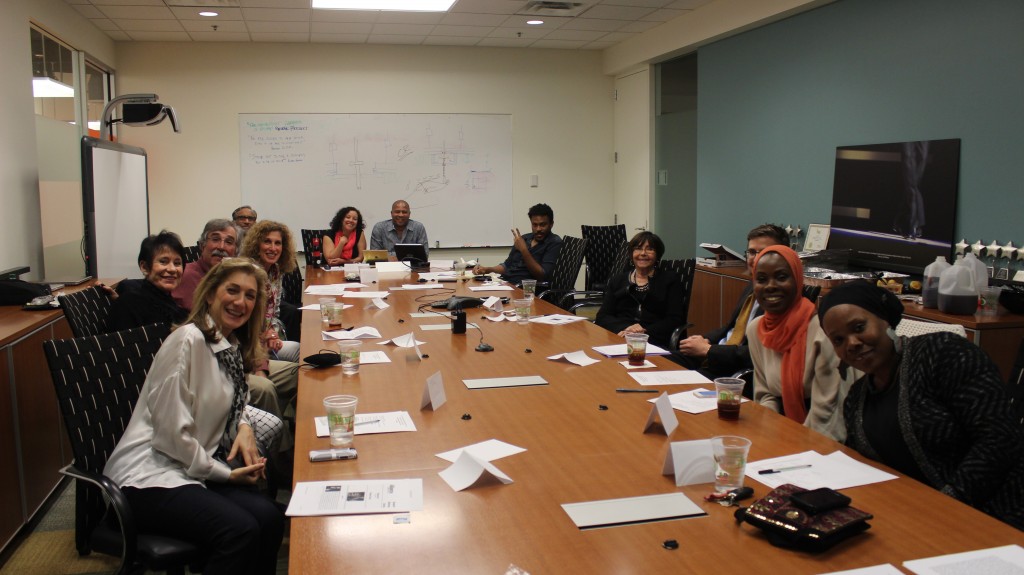On Thursday, March 24, 2016, the Alliance theater held a small private meeting with Muslims and Jews to discuss the play Disgraced. The play was featured at the Alliance from January 27 to February 14, 2016. Per The Alliance website:
Disgraced tells the story of Amir Kapoor, a successful lawyer who is rapidly moving up the corporate ladder while distancing himself from his Muslim roots. When Amir and his wife Emily host a dinner party, friendly conversation quickly explodes into something far deeper and more dangerous. A turbulent thrill ride, Disgraced examines an American identity far more complicated than any melting pot.
Overall the group, later coined a “Think Tank,” agreed that Disgraced was a human story. The issues that revolved around identity could have any person within a society and any religion. The playwright is brilliant in adding layers, such as ethnicity and religion through the characters. There were two characters that were cousins, one identifying as a practicing Muslim and the other (the main character) struggling with his religious identity. There was a Jewish man who had an ideological confrontation with the main character. The other two characters were women, one white (married to the main character) and the other black (married to the Jewish character. The religion of the women were left ambiguous but each were well versed in religious dialogue.
The roundtable discussion opened on one side of the table and went around in a circle. Each person gave their viewpoint of how they interpreted the play as well as their overall feelings about it. It was a passionate room but very respectful of each others opinions. Muslims in general had problems with the statements about Islam within the plays dialogue. There were things said that all agreed were not true about the text in the Islamic holy book, the Quran. Also, the religious questions or problems within the play were never answered or cleaned up. With the climate of America and around parts of the world in regards to Muslims, a play the Disgraced can leave audience members that are not familiar with Islam and Muslim practices with invalid and misguided information about the religion. Again, everyone agreed with the human side of the story, but the religious aspects is where the passion of the conversation came in to play.
Surprisingly to me, form the Jewish seats at the table, there was passionate pushback about the Jewish character in the play. One man said, “I don’t want to you to leave thinking that he represents what a Jew is either.” The Jewish man was considered “secularized.” The moral and ethical principles of both faiths were in question throughout the play.
At one point in the discussion, the community engagement manager of the Alliance, Michael Winn, interjected that “this is exactly what the playwright wanted.” The fact that we could all be sitting there having a passionate discussion as people different faiths but finding a human bond based on what we saw from a play is remarkable. Winn stated that the Alliance had never had as many people staying after the show to have further discussion. This was a characteristic of the play in its shows around the world. The Alliance housed crowds of over 300 just to discuss the play afterwards.
I personally left the talk feeling happy that I invited and could contribute to the conversation. I also enjoyed listening to what the rest of the table had to say. It was good company and with people that have a more in common than different. I would be eager to join another discussion about a play with this kind of group.
Ameer Muhammad, Georgia State University, Documentary Filmmaker
wwww.filmbyam.com
https://www.linkedin.com/in/filmbyam
